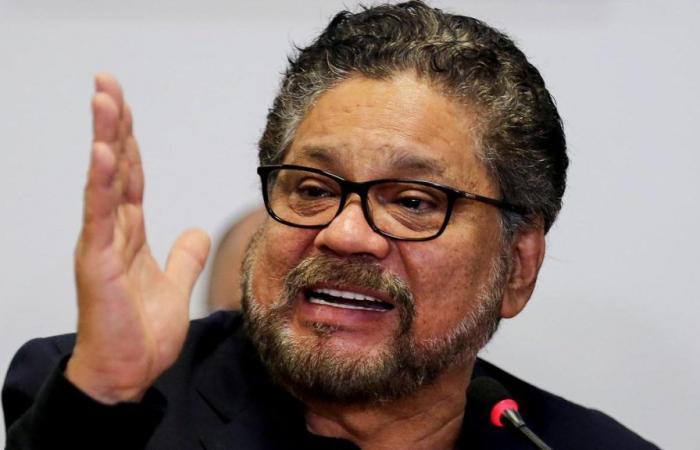The government of Colombia and the Second Marquetaliaone of the dissidents of the FARC guerrilla, opened this Monday in Caracas their first round of peace negotiations, a bet by the leftist president Gustavo Petro.
Seven government delegates and another seven from the insurgent organization led by the former number two of the extinct guerrilla, alias Iván Márquez, participate in this first process, which extends until Saturday.
“Today we want to express that the Second Marquetalia Bolivarian Army, under my command and its collective leadership, has every willingness to contribute to the common achievement of peace for Colombia“said Márquez, present at the event.
These negotiations generate resistance since they are carried out with detractors of the peace agreement with the Forces Revolutionary Armies of Colombia (FARC) in 2016, when Márquez was the second most important man in the organization and chief negotiator.
The parties expressed that in this first phase negotiation protocols will be defined and the first decisions will be announced.
Márquez – whose real name is Luciano Marín – insisted in Caracas that his return to the armed insurgency responded “to the non-compliance and betrayal of the State of the Havana Peace Agreement”.
“We cannot start from scratch,” responded the head of the government delegation, Armando Noboa, despite considering that there was an “improper implementation” of the agreement. “It would be a historic error, especially for the signatories of the 16th (…). That agreement is a binding mandate, in force.”
The guerrilla leader remained in the process for a few years after the agreement that led the guerrilla to become a political party. But he defected and in 2019 he reappeared in a video announcing a new armed rebellion.
Ceasefire?
Petro, who also negotiates with National Liberation Army (ELN), began talks last October with the ECentral General Staff (EMC), truncated by internal divisions within that block of dissidents.
Before starting the talks, the commander of the Colombian Military Forces, General Helder Giraldo, announced that “there are approaches” to reach a bilateral ceasefire.
But Otty Patino, Colombia’s high commissioner for peace, initially ruled out this possibility and said that this process involves, in principle, “de-escalating the conflict.” “The ceasefire as proposed is based on a technical element that will never be perfect.”
The Second Marquetalia has about 1,660 combatants, according to military intelligence calculations. Analysts consider that it is a weak guerrilla compared to the EMC led by alias Iván Mordisco, a leader who did not sign peace in 2016, and with the National Liberation Army.
Petro has been talking to EMC since October last year, before the group split in two in April. Half of the guerrillas under Mordisco’s command left, while the other 50% remain in dialogue.
The dialogue with the ELN is going through a crisisfor which there are still no solid solutions.
Political future
In 2023 local media speculated about the death of Iván Márquez in Venezuela after suffering an attack. But in May he appeared in a video expressing his support for Petro.
Márquez is “one of the few old guard heads left” with “strong ideological bases,” Francisco Javier Daza, researcher at the Peace and Reconciliation Foundation (PARES), explained to AFP. And that “has a weight” and “may contribute to making a negotiation much faster, much more effective” than those that the government has open with the ELN and the EMC.
Walter Mendoza, head of the insurgent delegation, announced that the Second Marquetalia aspires to “the possibility of continuing to do politics without weapons.”
“Compliance with what was agreed will be the condition,” he concluded.


